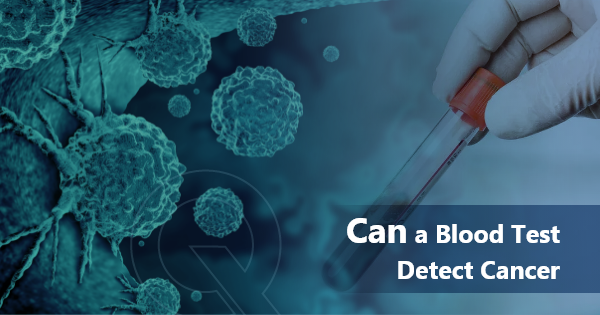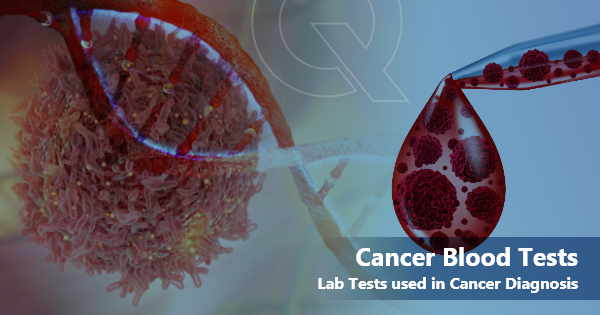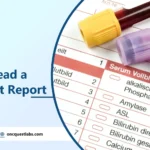Cancer is a complex and often deadly disease that affects millions of people worldwide. Timely detection is paramount for effective treatment and improved outcomes. One valuable diagnostic tool in the fight against cancer is the blood test. In this comprehensive exploration, we will delve into the role of blood tests in detecting cancer, shedding light on their significance, limitations, and evolving technologies.
Contents
Understanding Cancer Biomarkers:
Cancer is characterized by the uncontrolled growth of abnormal cells within the body. These malignant cells can secrete specific substances, known as biomarkers, into the bloodstream. The presence and levels of these biomarkers can vary depending on the type, location, and stage of cancer.
Common Cancer Blood Tests:
Several blood tests have been developed to detect and monitor various types of cancer. Here are some of the most widely used ones:
1. PSA (Prostate-Specific Antigen) Test:
– Purpose: To screen for prostate cancer.
– Biomarker: PSA, a protein produced by the prostate gland.
– Considerations: Elevated PSA levels may indicate the presence of prostate cancer, but they can also be influenced by non-cancerous factors.
2. CA-125 Test:
– Purpose: Primarily used for the detection of ovarian cancer.
– Biomarker: CA-125, a protein often elevated in ovarian cancer.
– Considerations: Elevated CA-125 levels can prompt further evaluation, but other conditions may also cause raised levels.
3. CEA (Carcinoembryonic Antigen) Test:
– Purpose: Monitoring colorectal cancer and other cancers.
– Biomarker: CEA, a glycoprotein.
– Considerations: Rising CEA levels can indicate disease progression or recurrence.
4. AFP (Alpha-fetoprotein) Test:
– Purpose: Detection of liver cancer and certain testicular cancers.
– Biomarker: AFP, a protein produced by the liver and yolk sac of a developing fetus.
– Considerations: Elevated AFP levels may necessitate further investigation.
5. Liquid Biopsy:
– Purpose: Analyzing circulating tumor DNA (ctDNA) in the blood.
– Biomarker: Genetic mutations and alterations specific to cancer.
– Considerations: Liquid biopsies are an emerging technology that can provide valuable insights into the genetic profile of cancer cells, guiding treatment decisions and monitoring disease progression.
Challenges and Limitations:
While blood tests are valuable tools in the early detection of cancer, they are not without limitations:
1. False Positives: Elevated biomarker levels can occur due to non-cancerous conditions, leading to false-positive results. This can cause unnecessary anxiety and additional tests.
2. False Negatives: Some cancers do not produce easily detectable biomarkers, making blood tests ineffective for their detection.
3. Specificity: Blood tests may not always pinpoint the exact location or stage of cancer, necessitating further diagnostic methods like imaging and biopsies.
4. Screening Guidelines: The appropriateness and frequency of blood tests for cancer screening vary depending on factors such as age, gender, and family history. Regular discussions with healthcare providers are essential.
5. Evolving Technology: Liquid biopsies, while promising, are still relatively new and not yet universally available.
The Importance of Regular Screening:
Regular cancer screenings, tailored to an individual’s risk factors and medical history, are crucial for early detection. These screenings should encompass a combination of blood tests, imaging techniques (such as mammography and CT scans), and clinical evaluations. Timely detection provides the best chance for successful treatment and improved outcomes in the fight against cancer.
Conclusion:
Blood tests are valuable tools in the early detection and monitoring of cancer, offering a glimpse into the body’s internal dynamics. While they are not infallible, when used in conjunction with other diagnostic methods, they can be lifesaving. It is essential for individuals to engage in open discussions with healthcare providers about their risk factors and the appropriate screening measures. In the ongoing battle against cancer, early detection remains a cornerstone of hope and progress.
Frequently asked Questions
Q1:What test can detect early cancer?
A1:Multi-cancer detection (MCD) tests assess biological signals found in body fluids, often shed by cancer cells, referred to as biomarkers or tumor markers. The specific signals measured by the MCD test determine its ability to identify various types of cancer.
Q2:Can you have cancer with normal WBC?
A2:he impact of cancer on white blood cell counts can vary, with both elevated and decreased counts possible. The specific type of white blood cell affected and the location of the cancer within the body contribute to these variations.
Q3:Which test confirms cancer stage?
A3:Cancer diagnosis often involves various imaging tests such as computerized tomography (CT) scans, bone scans, magnetic resonance imaging (MRI), positron emission tomography (PET) scans, ultrasounds, and X-rays, among other methods. Additionally, biopsies are conducted, where your doctor gathers cell samples for laboratory testing.





